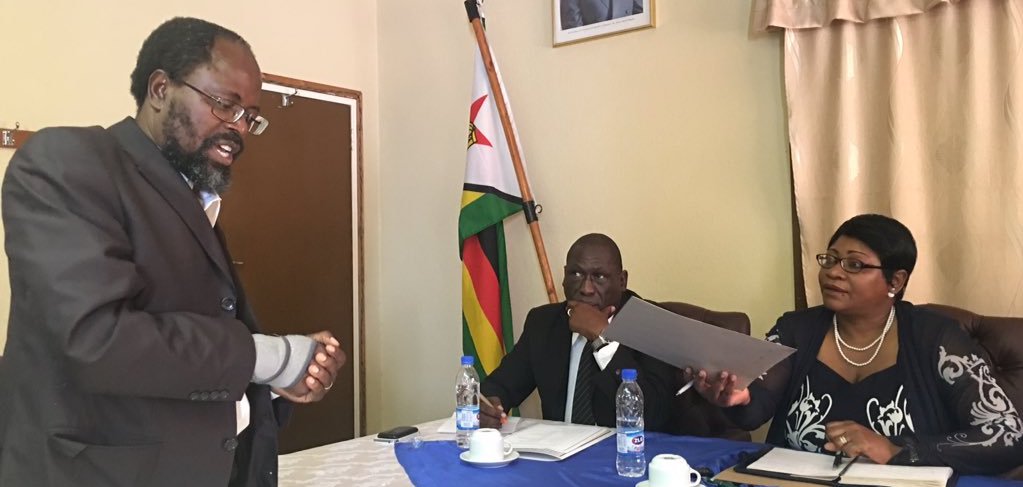MISA Zimbabwe led a delegation of journalists, representatives of the Zimbabwe Union of Journalists and Media Alliance of Zimbabwe and met with police chiefs in Harare on 16 September 2016.
This followed a letter MISA-Zimbabwe sent to the Zimbabwe Republic Police Commissioner General Augustine Chihuri on Monday 12 September 2016 seeking audience with him. The meeting was aimed at discussing the increasing number of cases involving journalists being harassed by members of the police force in the course of covering recent protests and public gatherings.
The MISA-Zimbabwe delegation headed by the organisation’s Trustees Chairperson, Cris Chinaka, handed over a petition expressing media practitioners’ displeasure over their treatment by the police to Commissioner General Chihuri’s delegated representative, Assistant Senior Commissioner Charity Charamba. The petition was signed by over 150 journalists drawn from both the state and private media as well as freelancers.
After the handing over of the petition, Chinaka conveyed journalists’ concerns and their call for the normalisation of working relations between the police and the media to ensure that both parties contribute to the peaceful development of the country.
While acknowledging the journalists’ concerns and expressing the police’s commitment to ensuring the safety of journalists, Assistant Commissioner Charamba also expressed the police’s misgivings on some journalists’ unprofessional conduct in covering events, especially those that involved the police.
The meeting came up with and committed to implementing resolutions on how to bridge the gap and eliminate suspicion between the police and journalists. MISA-Zimbabwe will share the resolutions in due course.









